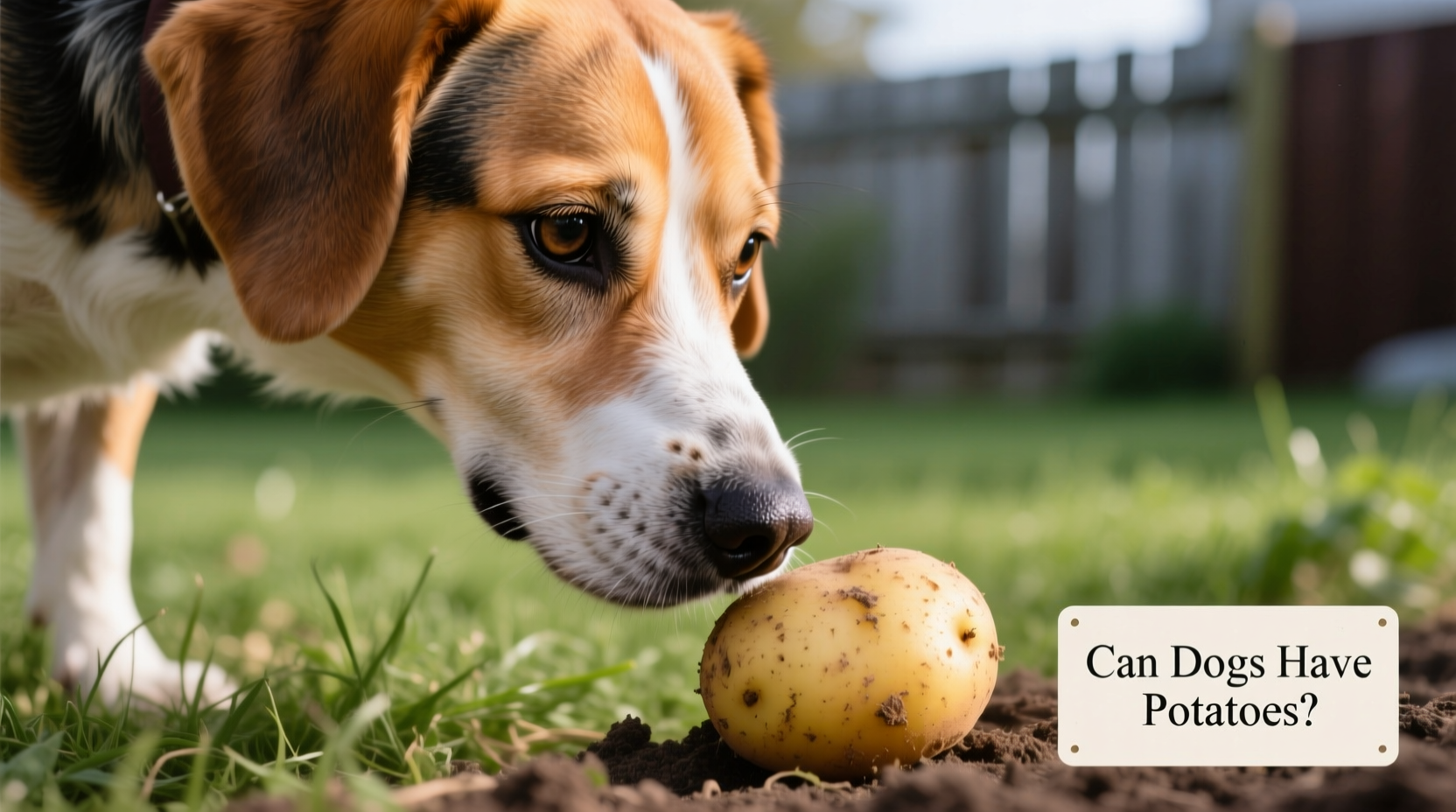Yes, dogs can safely eat cooked potatoes in moderation, but raw potatoes and green potatoes contain solanine which is toxic to dogs. Always serve plain, boiled or baked potatoes without seasoning, and limit portions to avoid digestive issues.
As a dog owner, you've probably wondered whether that leftover potato on your plate could be a tasty treat for your furry friend. The answer isn't as simple as yes or no—it depends on preparation, portion size, and your dog's individual health. Understanding the nuances of potato safety for dogs can prevent unnecessary trips to the vet while allowing you to safely incorporate this common food into your pet's diet when appropriate.
Understanding Potato Safety for Your Dog
Not all potatoes are created equal when it comes to canine consumption. The key difference lies in preparation and potato variety. While cooked white potatoes can be a safe occasional treat, certain forms pose serious health risks.
| Potato Type | Safe for Dogs? | Key Considerations |
|---|---|---|
| Cooked white potatoes (boiled/baked) | Yes, in moderation | Plain preparation only, no seasoning, skin removed |
| Raw white potatoes | No | Contains solanine, difficult to digest |
| Green potatoes | No | High solanine concentration, potentially fatal |
| Sweet potatoes | Yes, in moderation | More nutritious than white potatoes, cook thoroughly |
| Potato plants/vines | No | Highly toxic, contact vet immediately if consumed |
Why Potatoes Can Be Problematic for Dogs
Potatoes belong to the nightshade family, which contains naturally occurring compounds that can be harmful to dogs. The primary concern is solanine—a toxic glycoalkaloid found in higher concentrations in raw and green potatoes.
According to the ASPCA Animal Poison Control Center, solanine toxicity can cause gastrointestinal distress, neurological problems, and in severe cases, can be fatal. The concentration of solanine decreases significantly when potatoes are properly cooked, making them safer for canine consumption.

Safe Potato Preparation Guidelines for Dogs
If you decide to share potatoes with your dog, proper preparation is essential for safety:
- Always cook thoroughly—boiling or baking without oil is safest
- Remove all skins—where solanine concentration is highest
- Never add seasonings—no salt, butter, garlic, or other potentially toxic ingredients
- Cool completely before serving to prevent mouth burns
- Cut into small pieces to prevent choking hazards
Recommended Portions Based on Dog Size
Even when properly prepared, potatoes should only be occasional treats, not dietary staples. The appropriate portion depends on your dog's size:
- Small dogs (under 20 lbs): 1-2 tablespoons, once or twice weekly
- Medium dogs (20-50 lbs): 2-4 tablespoons, once or twice weekly
- Large dogs (over 50 lbs): ¼ to ½ cup, once or twice weekly
Remember that potatoes are high in carbohydrates, which can contribute to weight gain if overfed. The American Veterinary Medical Association recommends that treats should comprise no more than 10% of your dog's daily caloric intake.
When Potatoes Are Absolutely Unsafe for Dogs
Certain potato preparations should never be given to dogs under any circumstances:
- Raw potatoes—contain higher solanine levels and are difficult to digest
- Green potatoes—indicate high solanine concentration from light exposure
- Fried potatoes—excess fat causes pancreatitis risk
- Seasoned potatoes—garlic, onions, and excessive salt are toxic
- Potato plants—all parts contain dangerous levels of solanine
Symptoms of Potato Toxicity and When to Seek Help
If your dog consumes unsafe potato varieties, watch for these symptoms which may appear within 1-24 hours:
- Vomiting and diarrhea
- Weakness or lethargy
- Confusion or disorientation
- Dilated pupils
- Tremors or seizures in severe cases
Contact your veterinarian immediately if your dog shows any of these symptoms after consuming raw or green potatoes. Early intervention significantly improves outcomes for solanine poisoning cases.
Healthier Vegetable Alternatives to Potatoes
While potatoes can be an occasional treat, these vegetables offer better nutritional profiles for regular canine consumption:
- Cooked carrots—rich in beta-carotene, low calorie
- Green beans—excellent source of fiber, very low calorie
- Cucumber slices—hydrating and refreshing
- Cooked pumpkin—supports digestive health
Always introduce new foods gradually and monitor for any adverse reactions. Consult your veterinarian before making significant changes to your dog's diet, especially if they have underlying health conditions like diabetes or pancreatitis.
Can Dogs Have Potato: Practical Summary
When prepared correctly and served in appropriate portions, cooked potatoes can be a safe occasional treat for dogs. The critical factors are proper cooking, absence of harmful additives, and moderation in portion size. Remember that every dog is different—some may have sensitivities even to properly prepared potatoes.
For dogs with specific health conditions like obesity, diabetes, or pancreatitis, your veterinarian may recommend avoiding potatoes altogether. When in doubt about any human food's safety for your dog, always consult with your veterinary professional before sharing.











 浙公网安备
33010002000092号
浙公网安备
33010002000092号 浙B2-20120091-4
浙B2-20120091-4